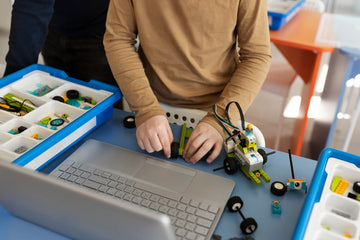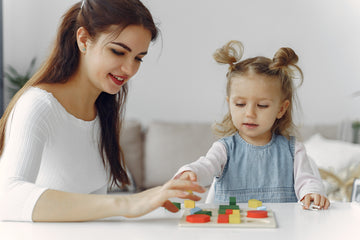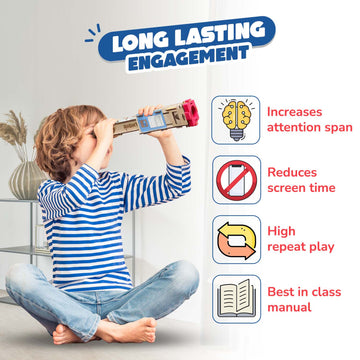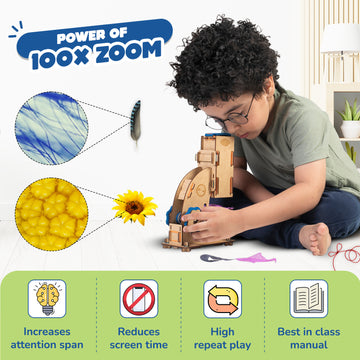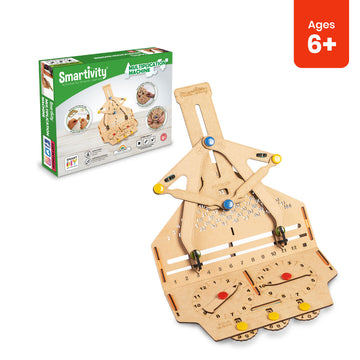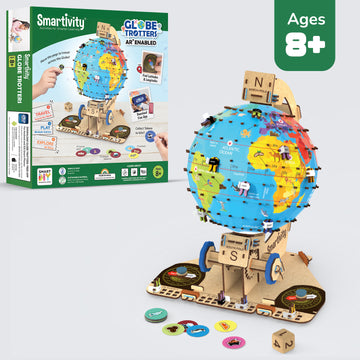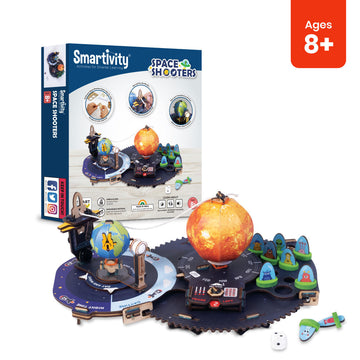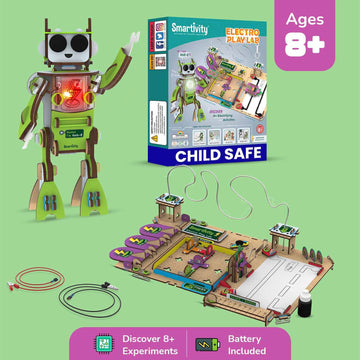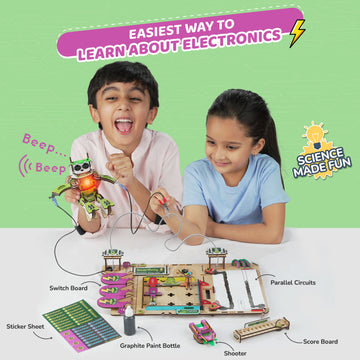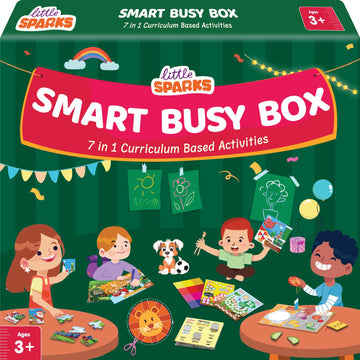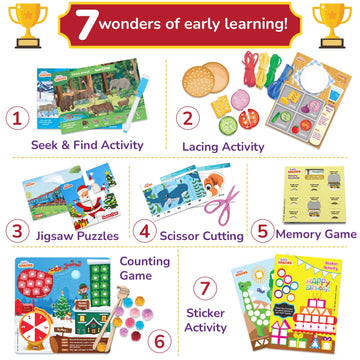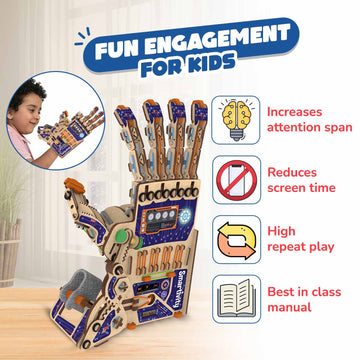How to Reduce Screen Time for Kids: Fun and Engaging Alternatives
by Chitra Khanna on Thu, Aug 28, 25

Screens have become a big part of everyday life for both adults and children. While a little screen time is fine, too much of it can impact your child’s sleep, behaviour, and overall development. Learning how to reduce screen time for kids is crucial to support their growth and well-being. By offering a healthy balance through fun, screen-free activities, you can keep them active, engaged, and happy. Whether indoors or outdoors, there are plenty of simple ways to spark your child’s imagination and help them learn through play.
Fun Alternatives to Reduce Screen Time for Kids
Keeping children entertained with no screen time can be challenging, especially when you're at home for extended periods. But with a bit of creativity, you can offer screen-free activities that are just as exciting, and much better for their development. Here are some fun, simple ideas to keep your child active, curious, and engaged.
Make Reading and Writing an Adventure
Stories and scribbles are a brilliant way to boost your child’s imagination and language skills. Read books together, act out scenes, or let them create their own storybooks and drawings. Whether it's bedtime tales or writing a letter to a friend, these activities offer screen-free fun with lasting impact.
Creative Crafts to Spark Imagination
Hands-on crafts are a brilliant way to reduce screen time while building fine motor skills and creativity. Try activities like potato-stamp art, pasta necklaces, or cardboard puppet-making—simple, low-cost projects that let your child explore textures, colours, and storytelling.
For more inspiration, check out our blog on easy craft activities for preschoolers packed with playful and development-focused ideas.
Play Indoors with Games and Puzzles
Board games, building blocks, and puzzles keep little minds busy while improving problem-solving and teamwork skills. Choose age-appropriate games that the whole family can enjoy, or let your child build their own world with LEGO or wooden blocks. It’s fun, screen-free play that builds thinking skills too.
4. Outdoor Adventures to Get Back to Nature
Take screen time outside by turning the garden, park, or even your street into a place of discovery. Outdoor play offers fresh air, exercise, and a chance to learn about the world around us.
· Nature Scavenger Hunts
Create a simple list of things children can find, like a yellow leaf, a smooth pebble, or a feather. As they explore, they develop observation skills and an appreciation for nature.
· Gardening or Planting Projects
Give your child a small patch of garden or a pot where they can plant seeds, water them, and watch their plants grow. It’s a great way to teach responsibility and introduce them to the life cycle of plants.
5. Get Them Involved in Household Chores: Cooking and Baking
Involving kids in simple household tasks like cooking or baking is not only practical, it’s educational and fun too! It helps build life skills, improves motor coordination, and encourages responsibility.
· Cooking and Baking Together
Let your child help with safe, age-appropriate tasks in the kitchen like stirring batter, washing vegetables, or decorating cupcakes. It boosts their confidence and gives them a sense of accomplishment while keeping them engaged away from screens.This shared time also opens up great conversations, encourages healthy eating habits, and turns ordinary routines into bonding moments.
6. Pretend Play & Sensory Fun
Imaginative and sensory-rich activities are a brilliant way to keep kids entertained while boosting creativity and emotional expression.
· Role-play, Puppet Shows, and Dress-up Games
Encourage your child to become a chef, doctor, or superhero for the day. These pretend play scenarios help them explore emotions, build communication skills, and develop social understanding, all while having loads of fun.
· Music, Dance, and Sensory Activities
Let them dance to their favourite tunes, bang on pots like drums, or explore textures with safe sensory bins. These kinds of play stimulate multiple senses and support motor development, making screen-free time truly engaging.
Looking for hands-on ways to keep your kids entertained without screens?
Explore Smartivity’s activity kits fun, educational, and designed to spark creativity while boosting essential skills.
The Importance of No-Screen Time for Kids
Reducing screen time isn't just about limiting devices—it opens up space for healthier habits that support overall child development. From improved physical health to stronger family bonds, non-screen activities offer numerous benefits. For more practical ways to set healthy tech boundaries, check out this guide on screen time for kids.
· Increased Physical Activity
Without screens, children are more likely to move their bodies, running, jumping, climbing, building strength and overall fitness naturally.
· Enhanced Creativity
Screen-free time sparks imagination. Kids invent games, build worlds with toys, and express themselves through art and storytelling.
· Improved Focus and Better Emotional Stability
Engaging in hands-on tasks and play boosts concentration and helps children manage their emotions more calmly and confidently.
· Stronger Family Connections
Activities like shared meals, board games, or garden time promote bonding, communication, and the joy of being present with one another.
Recommended Screen Time for Kids
- Under 2 years: Ideally, no screen time except for video chatting under adult supervision.
- Ages 2 to 5: Limit screen use to 1 hour per day of high-quality, educational content, with parents watching and interacting when possible.
- Ages 6 and above: Screen time should be balanced with sleep, physical activity, and offline play. Encourage healthy habits and set consistent boundaries.
Reducing screen time doesn’t mean cutting oufun; it’s’s about finding meaningful, engaging ways for children to learn and play. With simple, screen-free activities like reading, crafting, outdoor adventures, and pretend play, kids can develop vital skills while staying active and connected to family. Start small, stay consistent, and make non-screen time a joyful part of everyday life.


